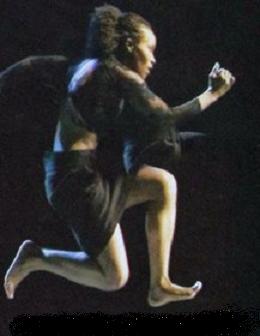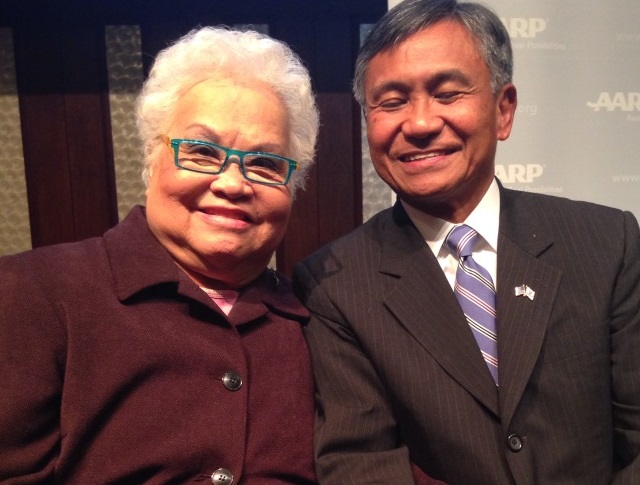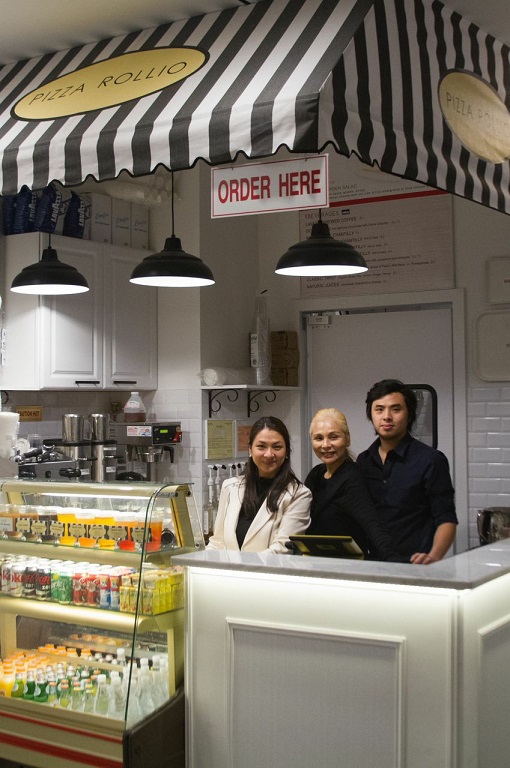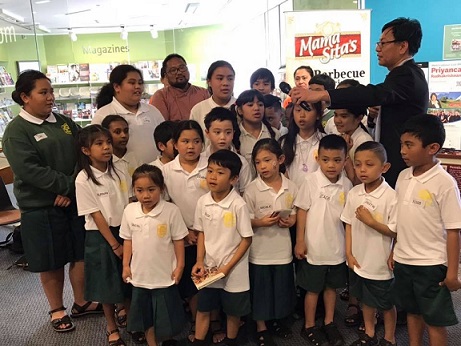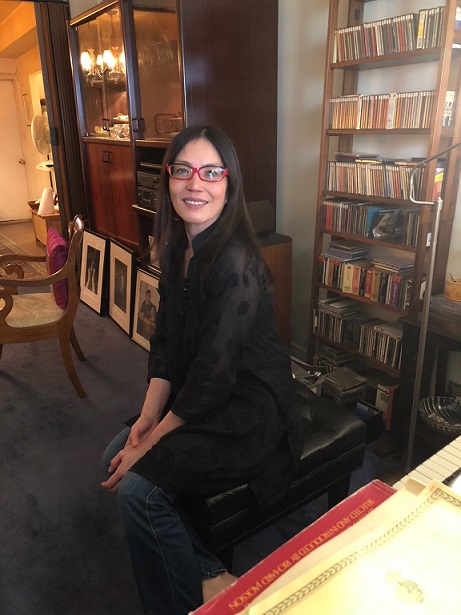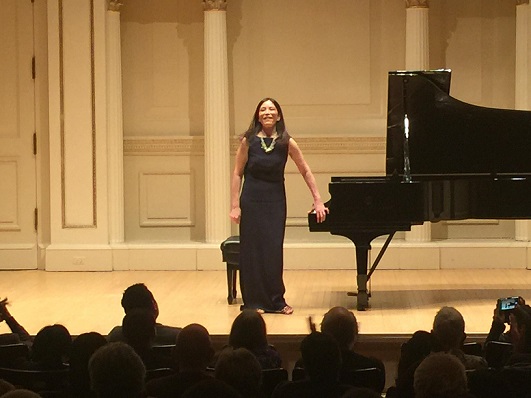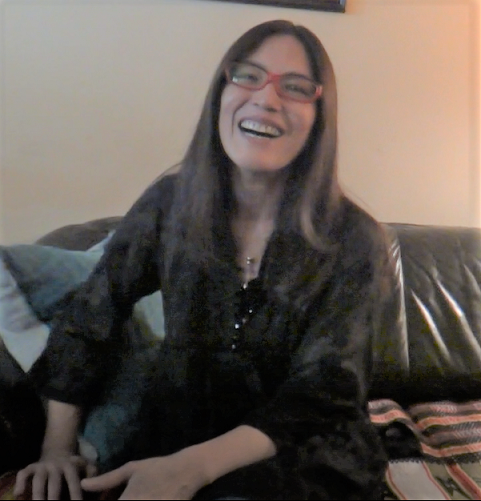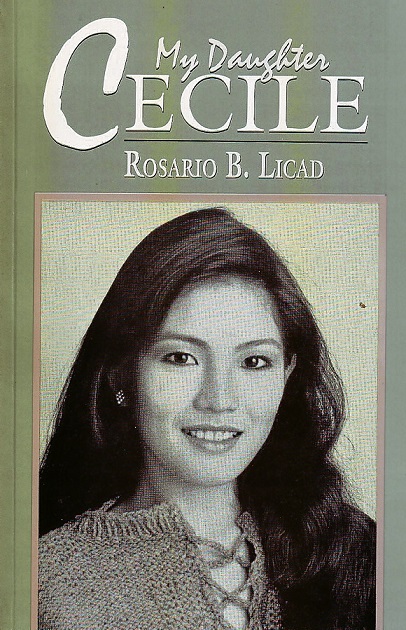Classical pianist Cecile Licad: ‘I’m like a carpenter, I build stuff.’
By Cristina DC PastorI was at Carnegie Hall on January 18 watching “Cecile Licad, Piano,” a recital made memorable by the pianist’s ebullient performance and her hypnotic way with the keys. She was wearing an elegant gown beaded at the back. On the day of my interview, a week later, it was Cecile Licad, Homebody I was meeting at her Upper West Side apartment, a lovely mess of books, CDs, music sheets, and paintings. She was dressed in jeans and black shirt that hugged her lean frame.
“I’m usually at the piano eight hours a day,” she began to talk about a typical day in New York, in an apartment with two grand pianos by the living room – one a gift from Imelda Marcos, the other she bought right off a roadside in Philadelphia. “Continuous, yeah because I’m always learning many different things, I’m playing many different stuff. That’s just the way I am.”
From that point on in the interview, I got a glimpse of Cecile Buencamino Licad, the person, the passion.
A world-renowned pianist, she has received numerous awards – including the prestigious Leventritt Foundation Gold Medal previously conferred on virtuosos Van Cliburn, John Browning, and Malcolm Frager, among other accomplished musicians. She was 19 then, the youngest Leventritt honoree, according to reports.
Cecile first learned the piano at age 4 from her mother, Rosario Buencamino Licad, who was also teaching piano to Cecile’s three brothers.
“We were all in the kitchen. She had the blackboard there for the recipe for the day, and then sometimes there’s a treble clef and bass clef. That’s what I remember as a kid. Looking at notes,” she said, enjoying every bit of this pleasant memory as it came to her.
She remembered also with amusement hiding under the bed in an aunt’s house to avoid playing the piano.
“I was hiding underneath the bed with lots of bananas just so I didn’t have to play. You’d rather play with your cousins,” she recalled with laughter. “These are incidents as a child I wouldn’t forget.”
While her mother initiated her into the fundamentals of music, it was her father, Jesus Licad, a surgeon, who made her appreciate discipline.
“I remember as a child he would wake me up at 4 in the morning before I even brushed my teeth (and I would go) from the bed to the piano,” she said. After practice, she would be rewarded with fried ‘bangus’ and vinegar, which is her favorite. It is her comfort food of choice even now in New York where she has lived for more than three decades. “My father was quite a perfectionist, strict, you can’t make mistakes.”
At 5, Cecile took formal piano lessons under Rosario Picazo of the University of the East School of Music and Arts, and grew into this young girl that had this abundant talent and dedication. At 7, she had her concert debut and caught the eye of then President Ferdinand Marcos and First Lady Imelda Marcos. She continued to train with the Imelda’s Young Artists’ Foundation which made Cecile its First Piano Scholar. And that’s how she became known as Imelda’s favorite prodigy.
At 12 and already a recognizable name in the Philippine classical music scene, Cecile decided to pursue her studies in the U.S. She enrolled at the Curtis Institute of Music, a conservatory in Philadelphia, and three years later, at the Rudolf Serkin’s Institute for Young Musicians in Vermont. “I was living in the mountains in Vermont,” she wrote in a published essay. By this time, her music education had been taken over by distinguished American concert pianists.
She’s been called gifted a lot of times, but Cecile felt a certain unease with the label.
“(Piano) is what I do,” she said. “Concerts is my job, it’s my way of living. I’m always learning non-stop. It’s not like I’m learning because I’m preparing for one concert or one recital. I’ve been playing for such a long time but I feel I’m always a beginner when I learn my piece.”
One morning the janitor in her apartment building told her how he was dancing with a broom outside her door as he listened to her piano music.
“I get a kick out of those (stories) because it’s great that you can communicate with people who are not into classical music, and you’re able to make them listen,” she said.
To a neighbor who complimented her, she said, “I’m just like a carpenter, I build stuff. But it’s very nice when somebody enjoys it.”
She moved to New York in 1981, and shortly after married Brazilian cellist Antonio Meneses whom she met at a music festival in Austria. Their son Otavio, who works as a bartender in Midtown, was born in 1987. The marriage lasted nine years.
“Sometimes, you don’t get along with a person anymore, and that’s it,” she said.
Mother and son are like most others, enjoying one another and getting on each other’s nerves, but always “great buddies” at home or wherever they travel.
More from The FilAm’s interview with Cecile:
The FilAm (TF): How do you educate people about classical music?
Cecile Licad (CL): Not by talking. The way I express myself to people is through my music. By playing and communicating wherever I think the music should go. It’s very difficult to do. I never find it easy, but when I perform people think it’s easy, right? But nobody really knows what goes behind. It’s the same with film actors. With any instrument, some musicians just memorize and play notes memorize, yeah that’s great, but to put that certain emotion that has to be in that piece that I want to communicate, ah that’s hard.
TF: You’ve said in interviews that the piano is your best friend.
CL: It is. It’s the only thing I can control in my life. The other facets of life are uncontrollable. It’s where I feel like I’m having fun and nobody is bugging me. That I’m in my own world.”
TF: Was there ever a time you didn’t want to see the piano at all?
CL: Of course. As a 6-year-old, who wants to sit on the piano all day? When I was starting out it’s good and I played very well. Sometimes I needed something in my life other than a piano.
TF: Your mother must be proud of your success. Does she take credit?
CL: They (parents) always do. I was always stubborn. Maybe it’s a good thing. When I moved to the States, my mother was living with me for a while, somehow she couldn’t tell me what to do. It’s just the way my personality is. I may be polite but sometimes but I do what I think should be. I was not a very obedient kid. Sorry mom (laughs).
TF: How are you as a parent to Otavio?
CL: I’m freer.
TF: Do you have a favorite composer?
CL: I’m always asked who my favorite composer. I can’t have a favorite. I mean I do enjoy every single music I do. That’s the only way I can play for people.
TF: Do you ever play pop, like Elton John or Billy Joel?
CL: No. I do read a lot of Broadway songs in somebody’s house who adores Broadway. I do have certain instincts that when I see the notes in the music something tells me how it should go.
TF: What’s a typical day like for you?
CL: I’m usually at the piano eight hours a day…I just did my laundry. I cook when I have the time. Sometimes I don’t have the time and I’d rather focus on practicing. Of course, New York, I love it where you can just call, and the food is there whatever kind of food you want. And I like walking to the store.
TF: Who are your friends?
CL: I have a lot of Filipino friends. My best friends are nurses. They’re wonderful.
TF: Do your neighbors know you’re a famous person?
CL: Some of them.
© The FilAm 2018

